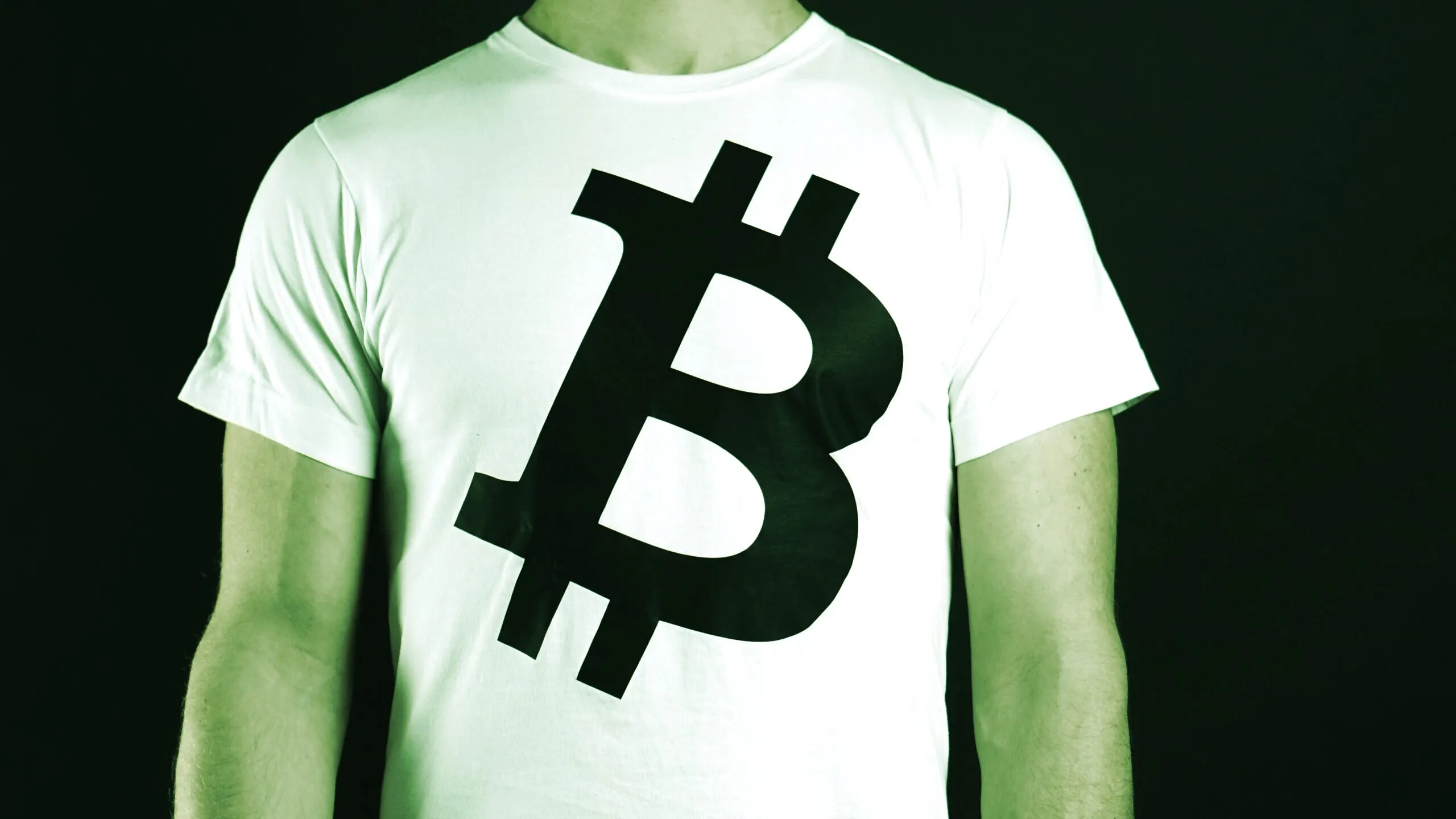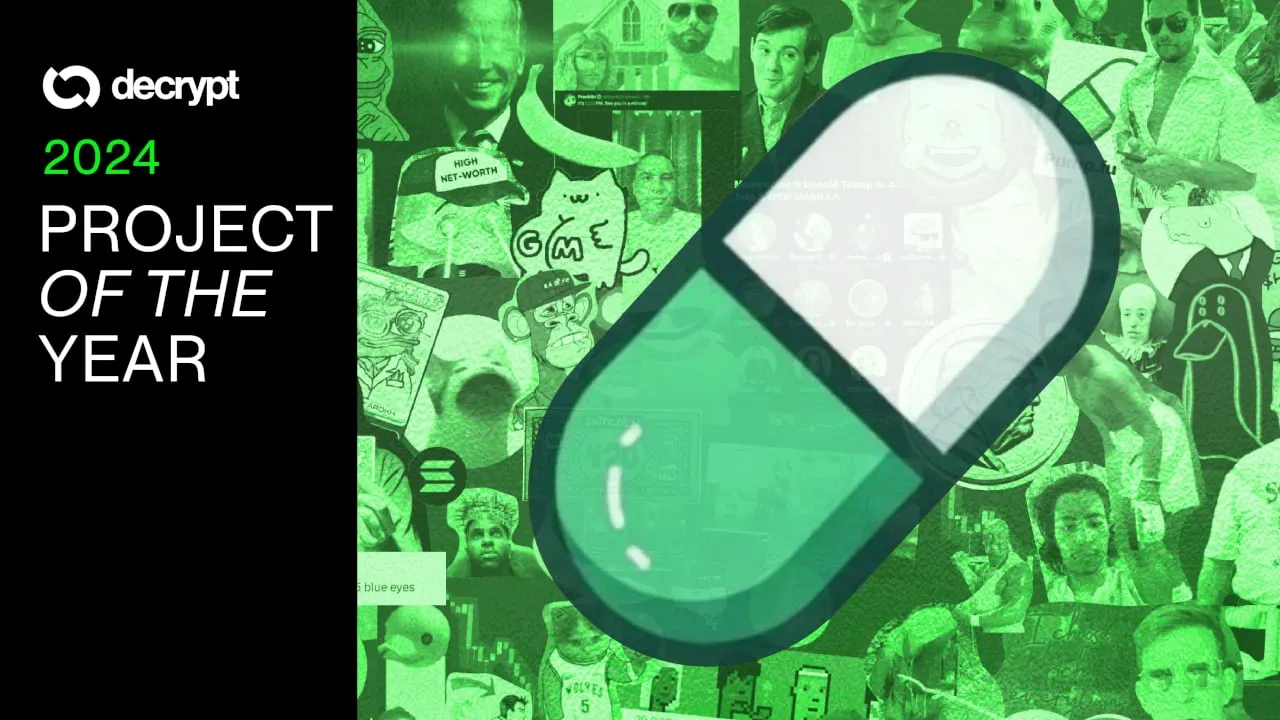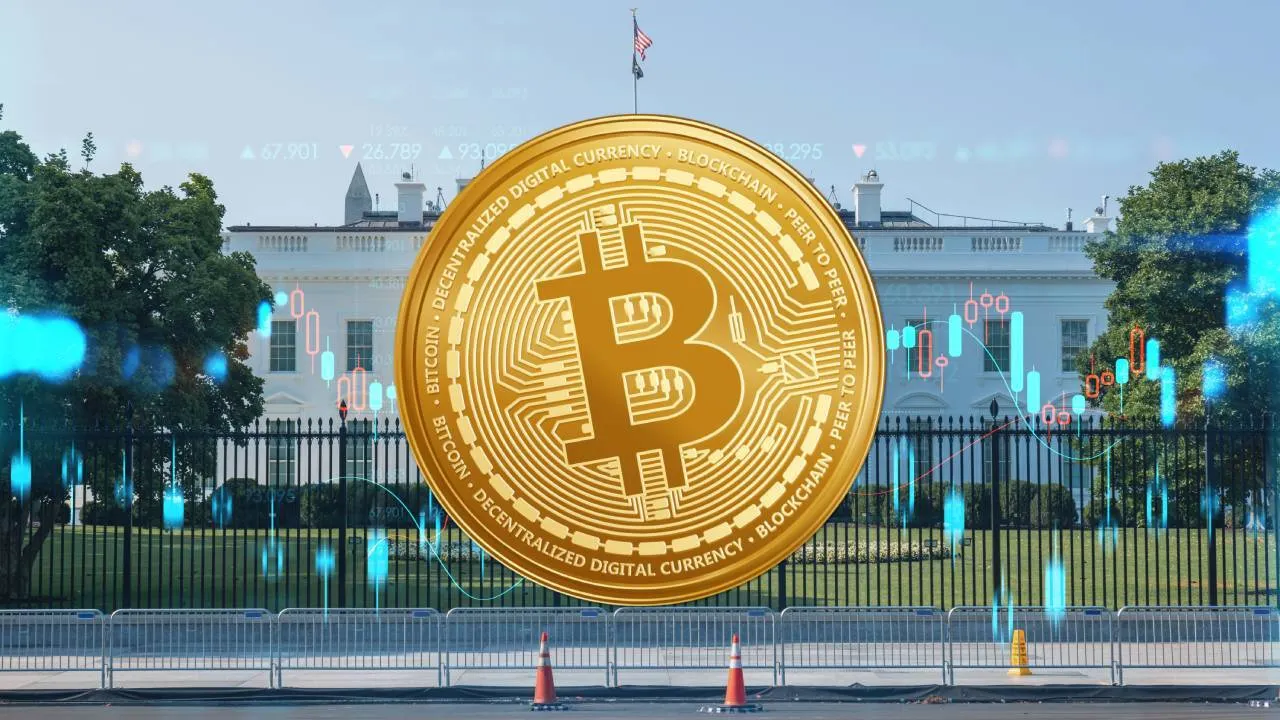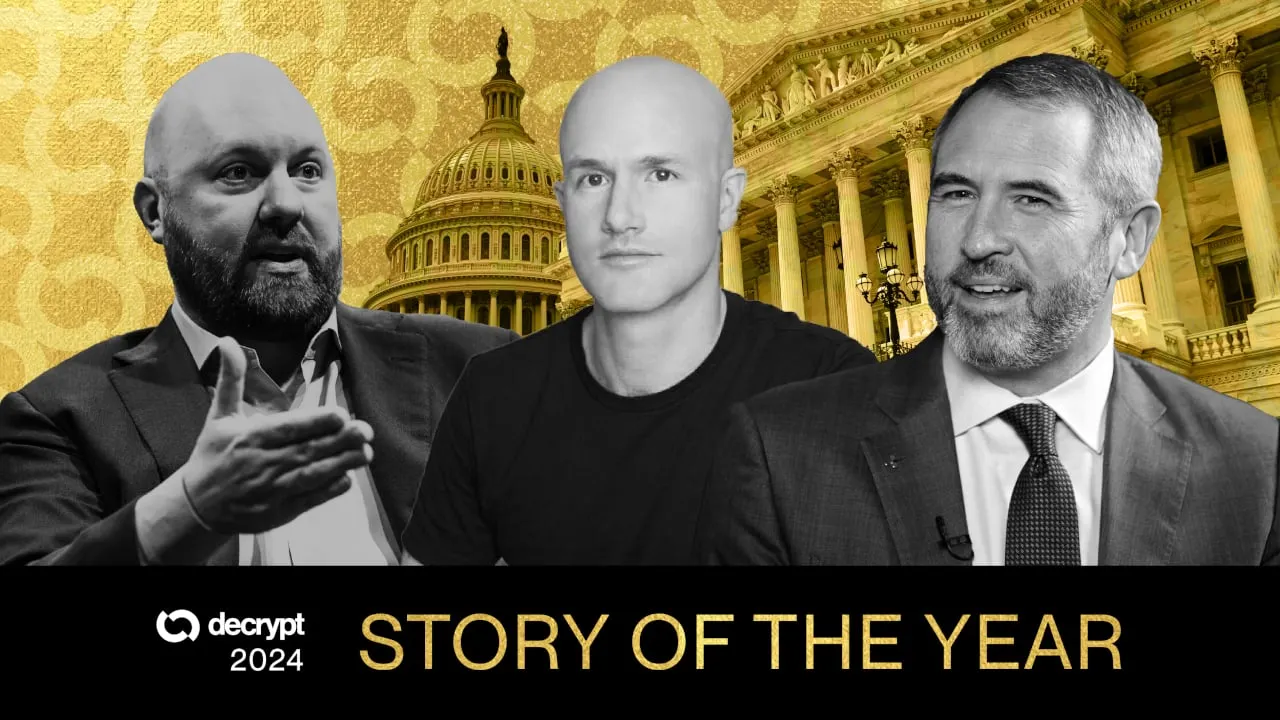In brief
- Investors are concerned about the fraudulent activity and lack of regulation associated with Bitcoin.
- Regulatory measures have proven effective, but are no silver bullet, as criminals often operate across multiple jurisdictions.
- Branding and design experts say the cryptocurrency needs a radical overhaul to clean up its image.
Bitcoin has an image problem.
“For almost a decade, Bitcoin and other cryptocurrencies have been subject to the worst headlines,” Bryan Edmondson, founder and creative director of award-winning brand reputation agency SEA, told Decrypt. “So why would a consumer trust this concept?”
Despite recent high-profile headlines about institutional buy-in from the likes of Tesla and MicroStrategy, a recent Gartner survey suggests that only 5% of finance execs would buy BTC in 2021.
Over four-fifths of the respondents said they would never hold it as a corporate asset because it is just too volatile—and their concerns appear to have been borne out by recent wild price swings that have seen Bitcoin hit an all-time high of $58,000 before plummeting by $10,000 on Monday in the largest one-day price drop in its history.
Prominent skeptics, such as newly appointed US treasury secretary Janet Yellen, need only touch on Bitcoin’s nefarious uses—its association with scams and money laundering—to set prices tumbling and investors running for the hills.
So is Bitcoin’s tarnished image fixable? Edmondson has some ideas. Decrypt also spoke to BBC broadcaster Jamie Bartlett, creator of hit podcast The Missing Cryptoqueen, and Albert Isola, Finance Minister of crypto-friendly Gibraltar.
How, we asked, can Bitcoin go about inspiring more public trust?
Just how bad is it?
The concerns of would-be Bitcoin investors are varied. Some worry about BTC’s volatility; others cite ecological anxieties such as Bitcoin’s carbon footprint.
But one thing that is more readily addressable is the regulatory uncertainty surrounding Bitcoin, which is tied up intrinsically with public perception. This is being tackled by countries worldwide in a broad variety of ways.
At one extreme, India and Nigeria are seeking to ban Bitcoin, citing the risks posed to their citizens; on the other, Switzerland was the first to license crypto banks and encourage the fledgling industry. The US falls somewhere in between.
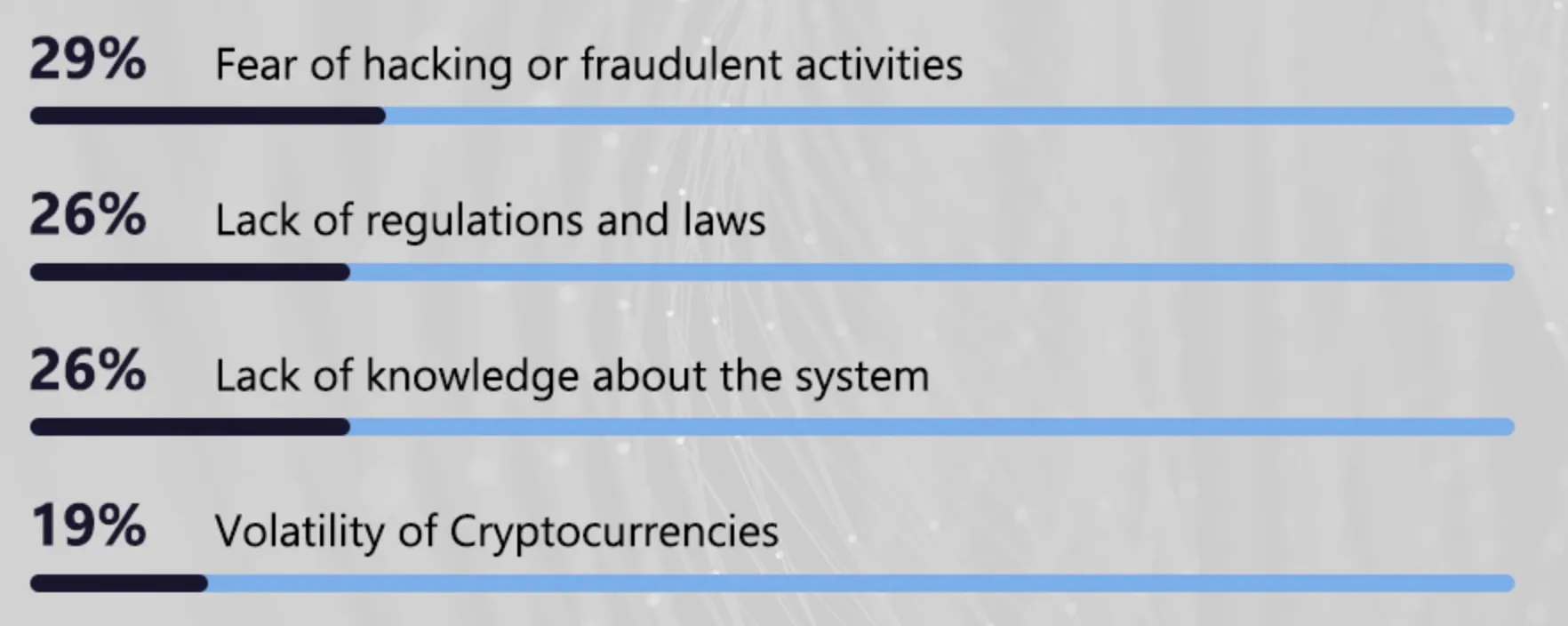
In the UK, as in many countries, regulations are only slowly evolving, leaving the public in doubt as to Bitcoin’s safety as an investment. Last week, Piplsay, a global consumer research platform, surveyed 6,070 Britons about their attitudes to cryptocurrencies and found that 29% of them fear hacking or fraudulent activities, while 26% are concerned about the lack of regulations and laws with regards to cryptocurrency.
A perfect storm
“It’s a very odd combination because [Bitcoin’s] increasingly got widespread acceptance by very well-known and respected people, without yet being fully part of the regulated financial system,” said Bartlett, who has used his podcast series to campaign for better awareness of public risk about cryptocurrency scams.
The series, The Missing Cryptoqueen, recounts the story of OneCoin founder Dr Ruja Ignatova—who sold investors a compelling cryptocurrency vision and allegedly absconded with $5 billion. Bartlett and his co-producer Georgia Catt used Ignatova’s dramatic (and still to be concluded) tale to explore the risks investors face from crypto-based multi-level marketing (MLM) schemes.

Bartlett said that the crypto industry has changed markedly since he first began researching Bitcoin. Early adopters—libertarians, hardline technologists, drug users, and criminal underworld types—have been replaced by a completely different set of actors: institutional investors and serious financial analysts. “It’s almost unrecognizable compared to when I was looking at this in 2014,” he said.
He believes that the risks people are exposed to have also changed. Prior to 2015, the biggest concerns surrounding Bitcoin were about the dark web and drug use, and the cryptocurrency’s use in ransomware and money laundering. “Now I think the big risk to people is getting sucked into putting all their money into Bitcoin wannabes like OneCoin, and losing their money because they think they're going to strike gold really quickly,” he said.
I find it mildly irritating that the FCA has posted a warning about bitcoin, and still not about OneCoin, a bona fide Ponzi scheme still being promoted in the UK. https://t.co/TYE1vxCLxb
— Jamie Bartlett (@JamieJBartlett) January 13, 2021
And there could be worse to come. Bartlett is concerned that crypto-based MLMs will proliferate this year, thanks to the combination of looming large-scale unemployment—people sitting around at home—and an exploding Bitcoin price. It’s “a perfect storm,” he warned; there’s no obvious remedy, and “the lack of regulation offers a window for scammers to claim that they're not illegal.”
Regulating the custodians
But some countries have spotted an opportunity. Switzerland, Malta, and Gibraltar are among the nations that were early adopters of regulations that welcomed digital asset firms and users.
Gibraltar’s Financial Services Commission (GFSC) spent three years studying the technology before introducing its Distributed Ledger Technology (DLT) Regulatory Framework in January 2018.

The British Overseas Territory (population: 32,000) didn’t always have such a clean reputation itself. Less than 15 years ago, it was a tax haven. “We need to be clear about these things,” Albert Isola, Gibraltar’s Minister for Digital and Financial Services, told Decrypt. “People don't like to admit it nowadays.”
But Gibraltar is now 100% up to date with every single European Union directive on money laundering, exchange of information, transparency, and tax, said Isola—even though thanks to Brexit it’s now no longer in the EU. It has a small but agile financial services industry that underwrites one in every four cars driving around the UK because it’s the only overseas territory in the world able to serve the UK financial services market, he added.
Notably, Gibraltar’s DLT regulations don’t target individual users or Bitcoin itself. Instead, they target “users of the technology that hold the digital asset on behalf of somebody else,” such as cryptocurrency exchanges and custodians like Huobi and eToro—both hold licenses in Gibraltar, Isola explained.
He added that the regulations the GFSC came up with are continuously evolving—in line with the rapidly developing digital asset sector, and are based on sound financial principles, such as corporate governance, due diligence, and possession of sufficient market capital.

Bitcoin Custodian Xapo Set to Receive Banking License in Gibraltar
Digital wallet and crypto custody provider Xapo is set to win a banking license from Gibraltar. The bank is the first such entity in Europe to have a physical branch, in Grand Casemates Square, at the heart of Gibraltar's city center. “Xapo have now established themselves in Gibraltar as a fully-fledged bank,” Gibraltar’s Finance Minister Albert Isola told Decrypt. He clarified that the firm, which already holds an e-money license in Gibraltar, is in the final stage of being granted a fully ac...
The commission expressly resisted regulating initial coin offerings (ICOsICOs)—a feature of the last cryptocurrency boom three years ago. “We were petrified of the reputational damage that they could cause us,” said Isola, explaining that, with enormous sums of money at stake, there was no way to monitor the process and outcome.
Since 2018, many other jurisdictions have followed Gibraltar’s example, and the US Securities and Exchange Commission has taken a number of companies deemed to have abused the ICO funding model to task.
The digital asset sector can only grow in a controlled and regulated environment, according to Isola: “People shouldn't be allowed to work in this space offering services to other people without being regulated, because history has taught us that they can't be trusted.”
Digging into the data
Not everyone thinks regulation will help boost Bitcoin’s image.
Bartlett told Decrypt that regulating the sector may even be unhelpful since one argument used by scammers is that they haven’t broken the law and that they aren’t selling something illegal, because they haven’t been stopped yet.
There's a lot of people now that are hearing about Bitcoin for the first time.
The problem is that countries have inconsistent regulations, and it’s hard to chase crime across borders. Over-the-counter trade doesn’t require know-your-customer (KYC) or anti-money-laundering (AML) steps, and is therefore untraceable. It’s essentially the only way to do business in countries such as China, where cryptocurrency transactions are banned.
And the fact that many scammers are operating outside the jurisdiction where the scam is taking place means that regulation is no silver bullet. “Ordinary people don't really know that, they don’t understand how it works,” said Bartlett. “There's a lot of people now that are hearing about Bitcoin for the first time, and just want a piece of the action and have no clue what they're doing.”
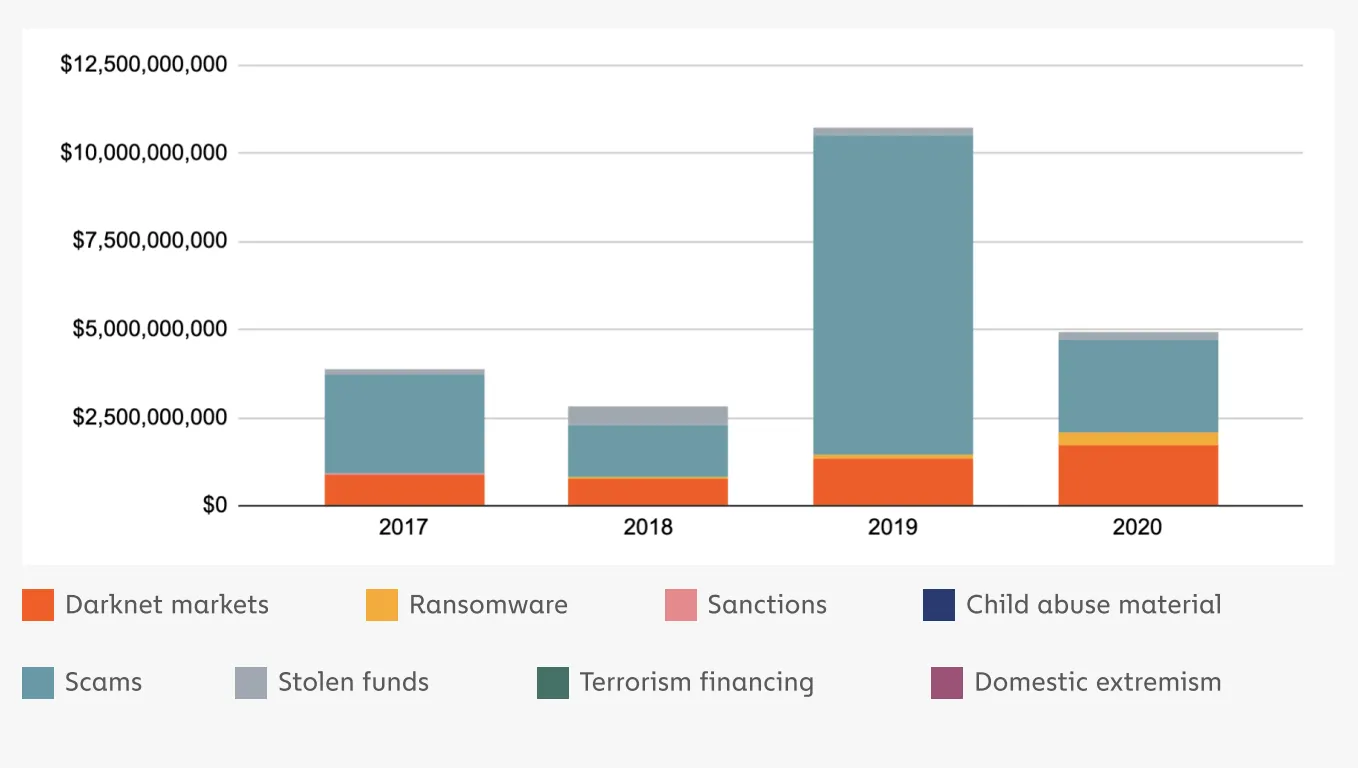
But there’s some good news; blockchain data firm Chainalysis suggests that just 0.34% of all cryptocurrency transactions last year were for nefarious reasons, down from 2.1% in 2019. The figure may yet increase, according to the startup, and ransomware is still a big problem, but 0.34% is tiny and retorts headlines that scream that Bitcoin is all about cybercrime.
The fact that Bitcoin transactions are untraceable is one of the great misconceptions surrounding the cryptocurrency. Increasingly, advancements in deep learning for graph or network structured data show great promise in identifying bad actors in complex money laundering schemes, ensuring that Bitcoin is not a foolproof transaction/money laundering method for any but the most sophisticated criminals.
However, neither painfully slow regulatory advances nor more sophisticated tracing techniques will help Bitcoin’s image in the short term.
Bitcoin and its brand
There is one industry that could offer a quick fix for Bitcoin’s image issues: the multi-billion-dollar branding industry. Studies on brand reputation have estimated that up to 80% of market value comes from hard-to-assess intangible assets such as brand equity, intellectual capital, and goodwill.
Bryan Edmondson is the founder and creative director of the multi-disciplinary brand reputation agency SEA, which touches on corporate identity and art, as well as packaging and information design to produce work for clients such as Christie’s, Adidas, Burberry, and EMI.

He’s convinced that image is everything; perception is formed in a split second, and these first impressions last. He also considers that the negative image of Bitcoin, as presented by the mainstream media until relatively recently, has done a great deal of damage. “Misunderstanding leads to a natural human instinct, mistrust,” he said. “We carry physical coins, notes, cards, and now smartphones to enable transactions, however, we trust these simple ideas due to the brands behind them. Trust is key.”
Trust in banks was radically compromised after the 2008 financial crisis—out of which Bitcoin was born. Post-2008, many banks spent extra millions improving their perception among the public. Increasingly, sentiment analysis became a common yardstick with which to measure their progress; in the UK, it was used to establish the social value of five banks—the love, happiness and hope they inspired.
If image is everything, then change the visual perception of Bitcoin.
While Bitcoin is a decentralized financial construct with no company board or official entity behind it, there is still a great deal that can be done to improve its image, according to Edmondson.
The general public rarely considers the strategy behind their perception of a brand, “we either visually like something or not,” he said. For financial institutions, he explained that the objective should be to inspire trust and warmth, but “the semiotics behind the Bitcoin image resembles board game graphics such as Monopoly, and when we play this game it doesn’t really matter if we go bankrupt!”

Bitcoin's Logo: The Story of the Big Orange “B”
It’s been emblazoned on buses, engraved on physical coins, and plastered across shop windows the world over. The Bitcoin logo, a slanted B in a jolly orange circle (hex code #F6911D, Pantone 1495 C, if you’re interested) has become a marketing phenomenon—and a vital tool in promoting the world’s biggest cryptocurrency. Creating a globally-recognized logo that can be picked out at a glance is no mean feat; the likes of Starbucks and Apple spend millions on teams of dedicated graphic designers, br...
He’s not the only design expert to criticize the big orange “B” which constitutes Bitcoin’s icon.
David Airey, a logo designer, and the author of several books on logo design, told Decrypt that the Bitcoin logo needs to straighten itself out, because “the slight clockwise tilt on the B creates a visual imbalance” and “it’s not a look that inspires confidence.”
Edmondson would go even further. Trusted and loved “badges” on cars convey a feeling of safety, and in retail, branding can communicate ethical trading and other key factors that consumers consider before parting with their cash. “If image is everything, then change the visual perception of Bitcoin,” he offered. “Maybe change its name?”
If that’s a stretch too far, Edmondson proposed a litmus test: “We wear brands with ‘pride' and some logos are even elevated to the high status of appearing on a t-shirt—so would you wear the Bitcoin logo?”
Even Bitcoin bulls Michael Saylor, Jack Dorsey, and Elon Musk haven’t been seen in a Bitcoin t-shirt. Edmondson could have a point.

